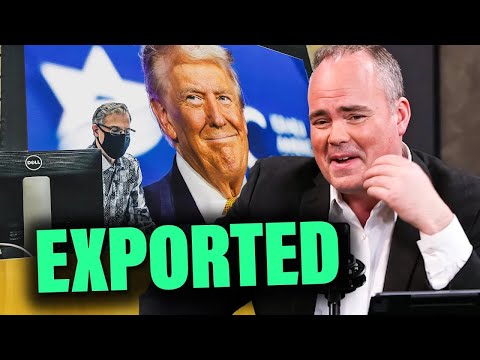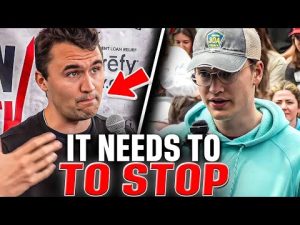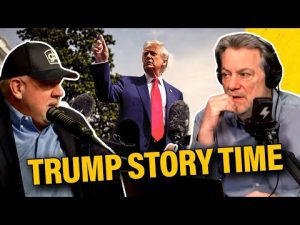**Cabinet Conversations and Controversies: Doug Collins Takes on CNN and the Curious Case of Jason Stanley**
In a world where politics often resembles a circus, the latest episode featuring Secretary of Veterans Affairs Doug Collins made for some riveting entertainment. During a recent interview, Collins found himself in the hot seat, squaring off with CNN’s Caitlyn Collins (no relation, as far as anyone can tell). While one might assume a discussion about veterans’ affairs would dominate the conversation, it quickly took a detour into the realm of Signal group chats and media hostility.
Caitlyn seemed determined to divert the discussion away from veterans to the signal chat leak that had recently made waves. But Doug Collins, showing a wit as sharp as a tack, didn’t let her steer the ship. With a blend of humor and serious concern, he questioned CNN’s treatment of veterans. He wasn’t just there to talk about the inner workings of top-secret discussions among cabinet members. No, he wanted to shine a light on veterans’ issues, and pointed out how the media sometimes misses the mark on these important discussions. It was a classic case of the interviewer becoming the interviewed, and Doug handled it with the finesse of a seasoned politician.
What’s more, Collins raised an eyebrow over the ramifications of cabinet members using a messaging app typically associated with secrecy. One can only imagine how curious the American public must be about what goes on in these chats when the nation’s leaders think they can ditch formal channels for a sleeker platform. Matters of national security, or just friendlier banter? The jury is still out, but one thing is for sure: Doug made it clear he preferred to keep the focus on veterans, not political intrigue.
Meanwhile, the segment wasn’t just about Collins showing his mettle. The conversation also took an unexpected turn towards the world of academia, featuring Jason Stanley. This Yale professor recently made headlines by announcing his decision to leave the United States for Toronto, citing a fear of the country slipping into fascism. In an ironic twist, his departure has become a source of intrigue for critics and supporters alike. It’s almost as if his exit had the same dramatic flair as a season finale of a binge-worthy show; people can’t quite look away.
Stanley’s brand of self-importance has won him fans and foes, primarily through his Twitter presence. He’s made a name for himself by engaging in word wars with various right-leaning figures, often proclaiming the need for “credentials” in discussions around hot-button issues like BLM. It seems some professors just can’t resist the urge to remind us of their academic achievements at every turn—college degree or not, we’ve all met that person at a party. But this time, Stanley has taken his personal drama to a whole new level, claiming the U.S. is no longer a suitable place for nurturing his family.
This combination of political spats and existential academic crises has many wondering: What happens when liberal scholars opt out of a country they feel is sliding down a slippery slope? Perhaps their absence might allow conservatives a bit more breathing room to express their views without the weight of academia looming like a heavy cloud. Maybe Doug Collins wasn’t just engaging in a spirited debate; maybe he was pushing back against an ideology that punishes dissent and applauds self-righteousness.
As the political landscape continues to evolve, one thing remains constant: the spectacle itself. Doug Collins’ tenacity in countering CNN’s narrative highlights not just the resilience of veterans’ advocacy but also the broader battle over appearances and perceptions in media. And while we wish Jason Stanley well on his journey north (highly probable he’s packing a few boxes of self-importance), it serves as a potent reminder that the debates will continue—whether across digital channels or in the halls of academia. In the end, it’s all part of the grand circus of politics, and one can only wonder what the next act will bring.



